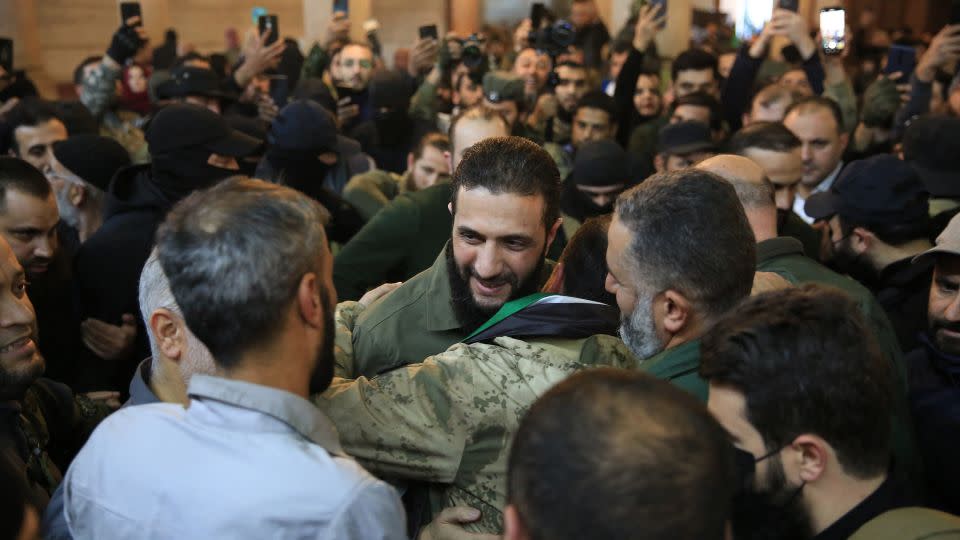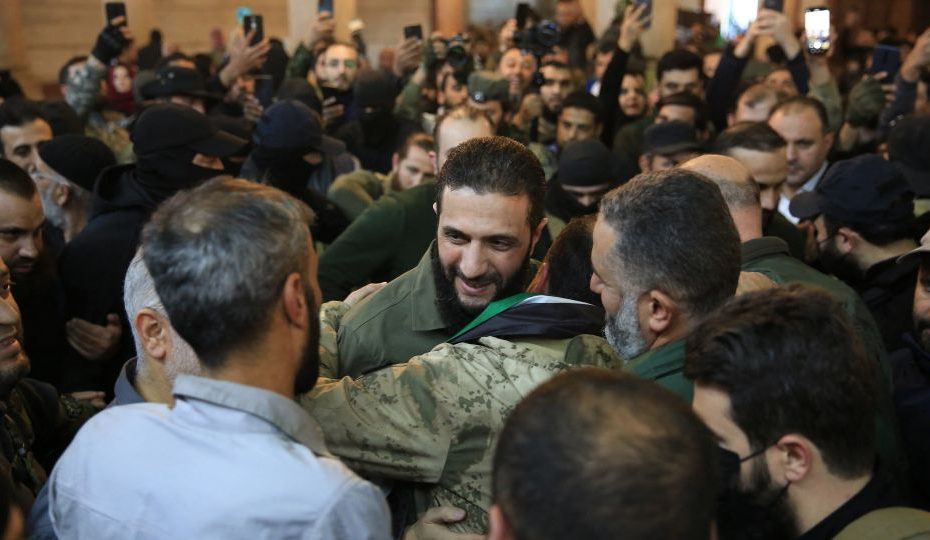Abu Mohammad al-Jolani's road to Damascus has been a long one. He has spoken openly about his change. From a young Al-Qaeda fighter twenty years ago to a rebel commander who embraced sectarian tolerance.
It's a journey on which he has had ample time to plan where and how he would mark his arrival, and to refine his story – his message to those who put him in power, those who might bring him down, and others who can keep him in power.
It's no surprise that the Islamist rebel chose Damascus's revered Umayyad Mosque – not a TV studio, nor a recently absent presidential palace, but a place of towering religious significance, which at 1,300 years old is one of the oldest mosques in the world is – to make that happen. message.
“This victory, my brothers, is a victory for the entire Islamic nation,” he told his small entourage, who stumbled behind him against the backdrop of the mosque's distinctive black-and-white stone splendor.
It was a message to all who brought him to power and propelled his Hayat Tahrir al-Sham (HTS) fighters across Syria with surprising speed to oust President Bashir al-Assad.
It was also a message for the newly liberated Syrians. “This victory, my brothers, by the grace of Almighty God (follows) the sacrifices of the martyrs, the widows and the orphans. This victory, my brothers, came about through the suffering of those who endured captivity,” he said.
In a country where the God you choose, and the way you pray, can define your class, limit your ambitions and pit you against your neighbor, Jolani has sent a very clear message in the Umayyad Mosque. He is a Sunni Muslim and belongs to the Syrian majority. Assad was an Alawite. There are Christians, Druze, Shia Muslims, Ismailis and more.
Yet the words he chose seemed intended to break through those old boundaries. “This new triumph, my brothers, marks a new chapter in the history of the region, a history full of dangers (that left Syria) as a playground for Iranian ambitions, spreading sectarianism and fueling corruption,” he said.

People welcome the leader of the Syrian Islamist Hayat Tahrir al-Sham (HTS) group, Abu Mohammed al-Jolani, before his speech at the Umayyad Mosque on December 8, 2024. – Aref Tammawi/AFP/Getty Images
Excluding Iran seems to be a message to Tehran's theocracy – that their meddling is over, that their easy access to land for their mega-proxy Hezbollah in Lebanon is over, that their support for Syria's Hezbollah is over, and that the house they once owned is also gone. Iranian weapons stockpiles.
But it's a message Jolani knows is being heard in Tel Aviv and Washington, where he is considered a member of a banned terrorist organization with a $10 million bounty on his head. A message that says to them: 'your interests are understood in the new Syria', and an understanding on his part that these are the powers that can bring him down.
Jolani has taken pains during his race to Damascus to ensure that US President Joe Biden and even newly elected President Donald Trump know his intentions. It is no coincidence that he chose an American TV network, CNN, rather than an Arab network, for a major interview in the days before he ousted Assad, claiming that he had distanced himself from other jihadists because of their brutal tactics.
A few hours later, Biden said he heard Jolani “say the right things” but insisted the rebel leader would be judged on his actions.
Jolani's message was also tailored to the regional powers he must keep aside, promising to clean up shop. “Syria is being purged,” he said, referring to the country's regional reputation as a narco-state. Assad's Syria had become “the world's leading source of Captagon,” an amphetamine-like drug, and of crime in the region.
Jolani's mosque speech was about arrival and survival. However, it is his actions that will secure the latter.
For more CNN news and newsletters, create an account at CNN.com

